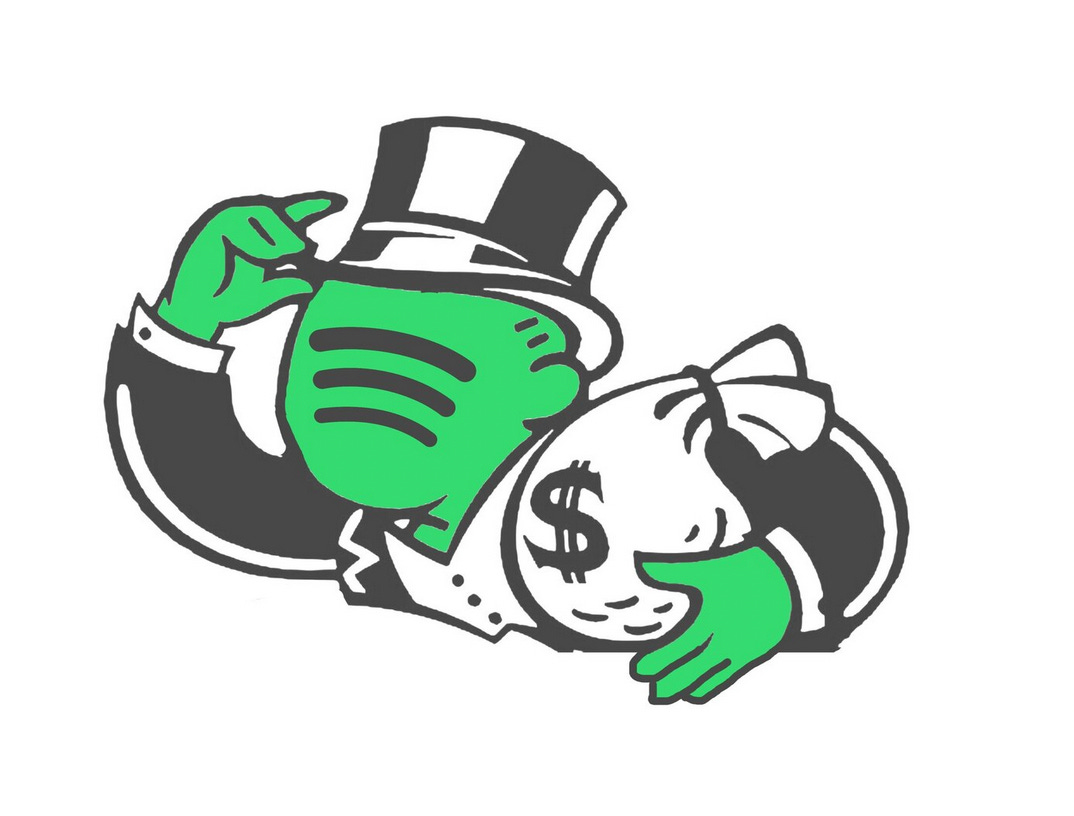The Big Short of Streaming

A friend writes, about Spotify’s CEO Daniel Ek:
“I saw him at a Grammy nominee party once. He was by himself at the seafood buffet and I watched him go back to a solo table. Despite his power not a single industry person was trying to schmooze him. I was shocked frankly.”
This image of Ek eating shrimp alone at a Grammy party is maybe all you need to understand what happened to Spotify this week. Given an ultimatum from Neil Young to choose between his Rock & Roll Hall of Fame catalogue or Joe Rogan’s rambling podcast of misinformation, the premier platform for music in the digital era began pulling down Neil Young’s albums within 24 hours.
After Joni Mitchell joined her old friend’s protest and removed her albums as well, Joe Rogan made a video saying he appreciated Spotify’s support and was sorry to see Joni leave cause he’s a fan of “Chuck E’s in Love.” Which is by Rickie Lee Jones.
Did Ek wince at that gaff? I am sure he didn’t notice, or care if it was pointed out to him. He had nothing to say to anyone at the Grammy party, and they had nothing to say to him.
Spotify is not a music company. This is what Neil Young’s gesture made clear to many, many more people this week. But lots of musicians have known it for ages, because the fact is that Spotify doesn’t value music. Indeed, its financial success as a company depends on the perception of music as valueless. In the Swedish academic study Spotify Teardown (2019), the authors describe how Ek and his colleagues created their business by treating music like junk bonds, or overstock goods:
“When Daniel Ek, Martin Lorentzon, and others first developed Spotify, they famously did so by building on a collection of music they did not hold any rights to themselves. The history of music streaming thus begins with an act of free riding – or arbitrage. As arbitrageurs of music, Ek and his colleagues would obtain scarce goods at no cost, with the aim of making revenue through advertising and later subscriptions, while others involved in the transaction – the composers, musicians, music publishers, artists, and repertoire owners – experienced an implicit loss.”
Spotify used the financial model of arbitrage to obtain a cheap if not free product – digital music – and resell it in a new context to realize profit. In other words, Spotify’s profit requires that digital music have no value. Spotify continually talks down the value of music on their platform – they offer it for free; they tell musicians we are lucky to be paid anything for it; they insist that without their service, there is only piracy and zero income. Most tellingly, they invest nothing back into music. Unlike a record label, publisher, or most anyone else in the music industry, Spotify devotes none of its profits to the development of new recordings.
In truth, without Spotify there are many ways to realize value for recorded music today. There is physical media; there are paid downloads; there are even other corporate streaming services that pay twice or three times the royalties that Spotify offers. Neil Young and Joni Mitchell know this well; they clearly have no doubt in the value of their music outside Spotify.
But Spotify can’t acknowledge that, in the spirit of normal negotiation, because it is in their vital interest to keep digital music from developing any value outside of the context they provide and sell – to subscribers, to advertisers, and above all to investors.
Is it any wonder that a company built on the financial device of arbitrage would appeal hugely to the stock market? Spotify’s accountants insist, nearly each and every quarter, that they have once again lost money on the music they stream. And yet this consistently losing business is now capitalized on the NYSE to the tune of $37 billion.
I am sure that Ek does not eat his shrimp alone at an investor meeting.
Which brings us back to misinformation. Neil Young offered Spotify a choice between the truth of music, and the misinformation of Joe Rogan and his ilk. But there was no question which Ek would choose, because Spotify is misinformation. They thrive on misinformation. They profit from misinformation. Their entire model of financial success is based on misinformation: the misinformation that music is valueless.
Stuff that in your seafood, Ek.
Listening to: Bandcamp
Cooking: Black coffee

Thank you for this. I’ve long understood Spotify isn’t about the music. That’s why I have Tidal and would never switch. Just take one a look at their interface - you can’t even play a album or make a playlist without them manipulating it. But I do have the app because I listen to a couple of podcasts through it.
Interesting, is there something individuals can do? Or recommended legislation